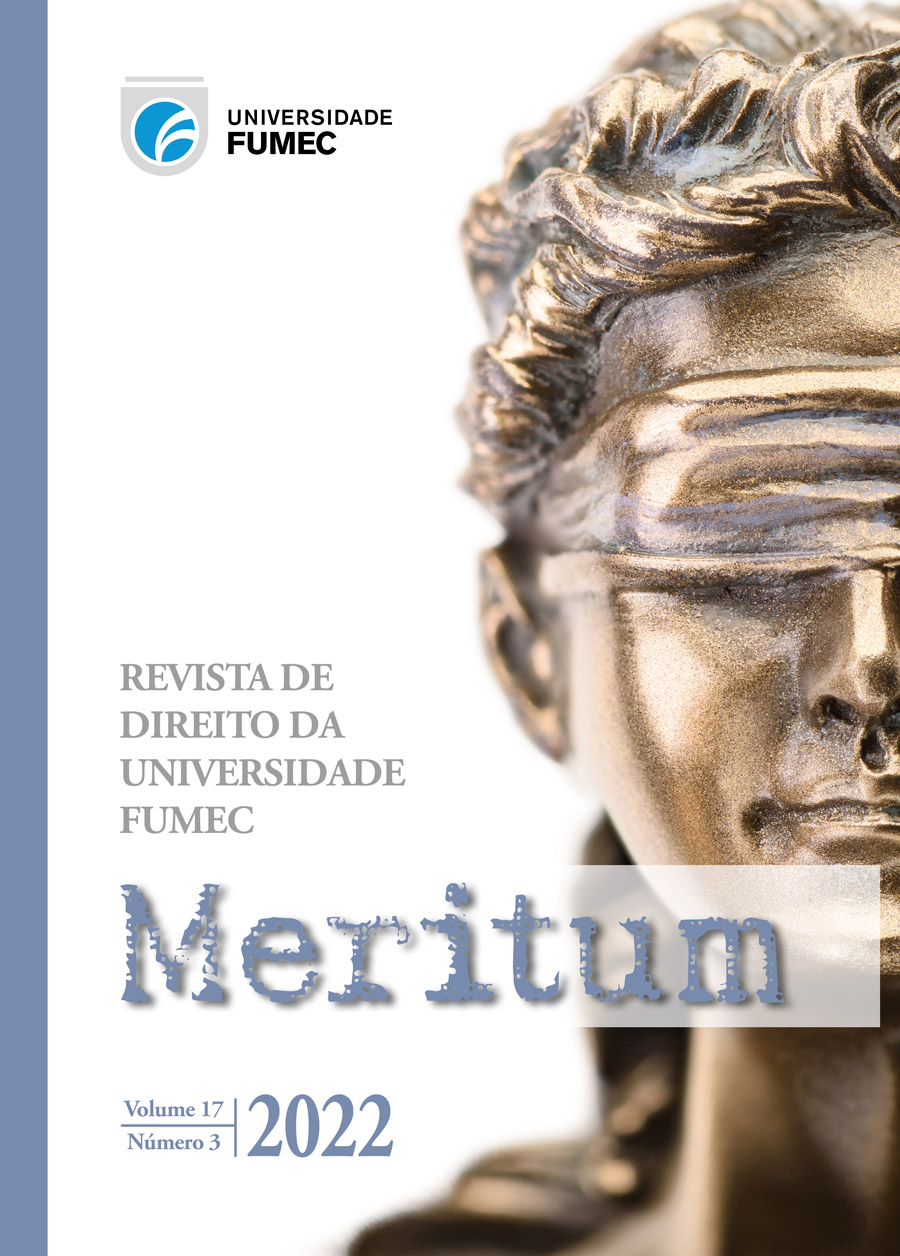A ARTIFICIAL INTELLIGENCE IN BRAZILIAN JUDICIARY AND CONFLICT MANAGEMENT
DOI:
https://doi.org/10.46560/meritum.v17i3.9374Abstract
This research aims, from the deductive method, through bibliographic research, to develop a study of technologies, in particular, artificial intelligence (AI) in Brazilian Courts, with the purpose of improving the jurisdictional provision and not only for the search of quantitative efficiency, but for the realization of constitutional principles, such as greater access to jurisdiction and reasonable duration of the process within the due process of law. It will be taken into account that the use of artificial intelligence by the Judiciary is increasing, having as a great challenge to align with constitutional and procedural principles when using it to resolve the high litigation and the high Brazilian procedural collection. Within this context, it is intended to demonstrate the importance of guaranteeing an effective judicial provision, observing the due constitutional process, aligned with new technologies as an aid to improve the performance of the Judiciary, having as a parameter the Democratic State of Law.
Downloads
Published
Issue
Section
License
Autores que publicam nesta revista concordam com os seguintes termos:
- Autores mantém os direitos autorais e concedem à revista o direito de primeira publicação, com o trabalho simultaneamente licenciado sob a Licença Creative Commons Attribution que permite o compartilhamento do trabalho com reconhecimento da autoria e publicação inicial nesta revista;
- Autores têm autorização para assumir contratos adicionais separadamente, para distribuição não-exclusiva da versão do trabalho publicada nesta revista (ex.: publicar em repositório institucional ou como capítulo de livro), com reconhecimento de autoria e publicação inicial nesta revista;
- Autores têm permissão e são estimulados a publicar e distribuir seu trabalho online (ex.: em repositórios institucionais ou na sua página pessoal) a qualquer ponto antes ou durante o processo editorial, já que isso pode gerar alterações produtivas, bem como aumentar o impacto e a citação do trabalho publicado (Veja O Efeito do Acesso Livre).






